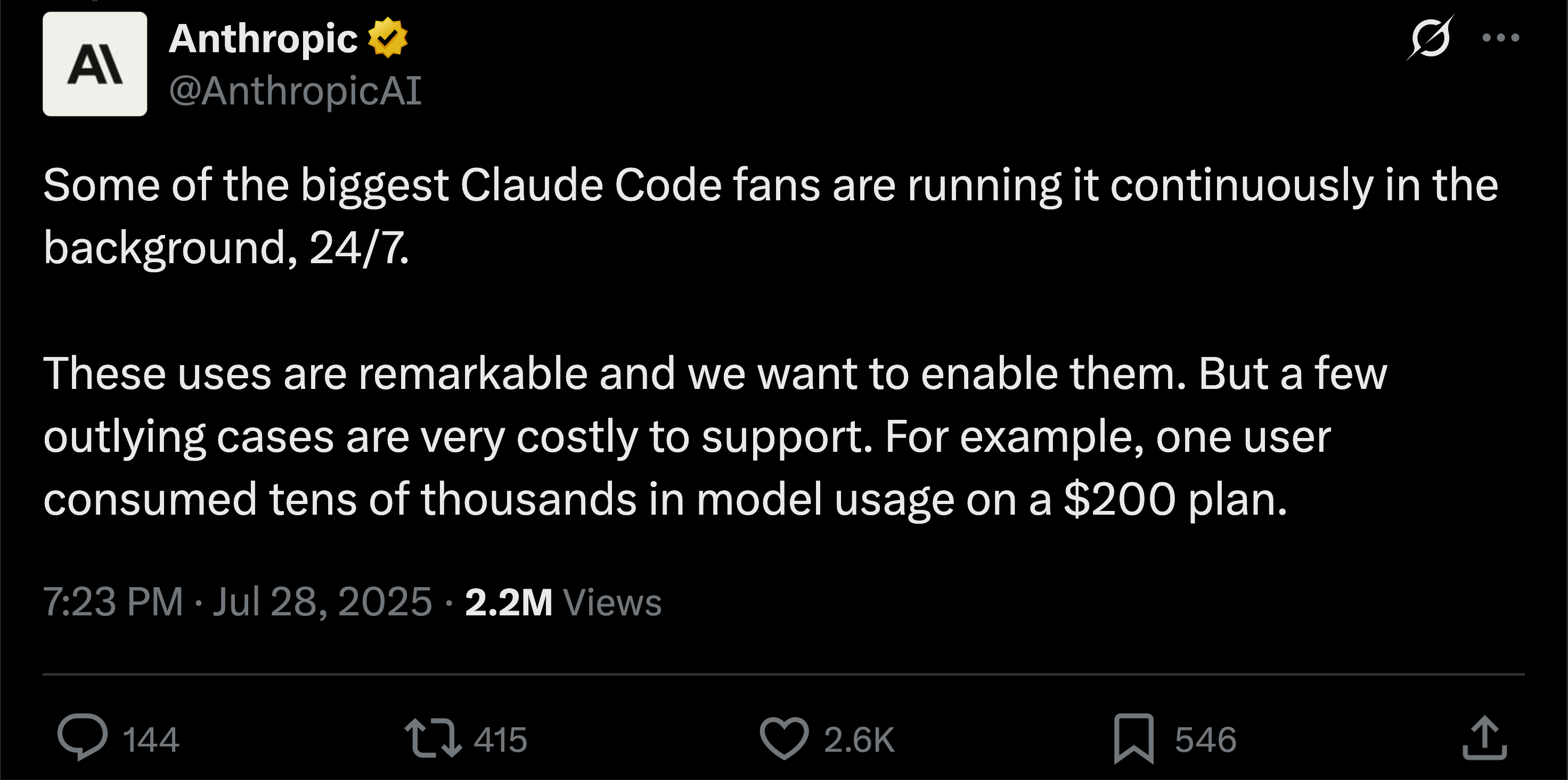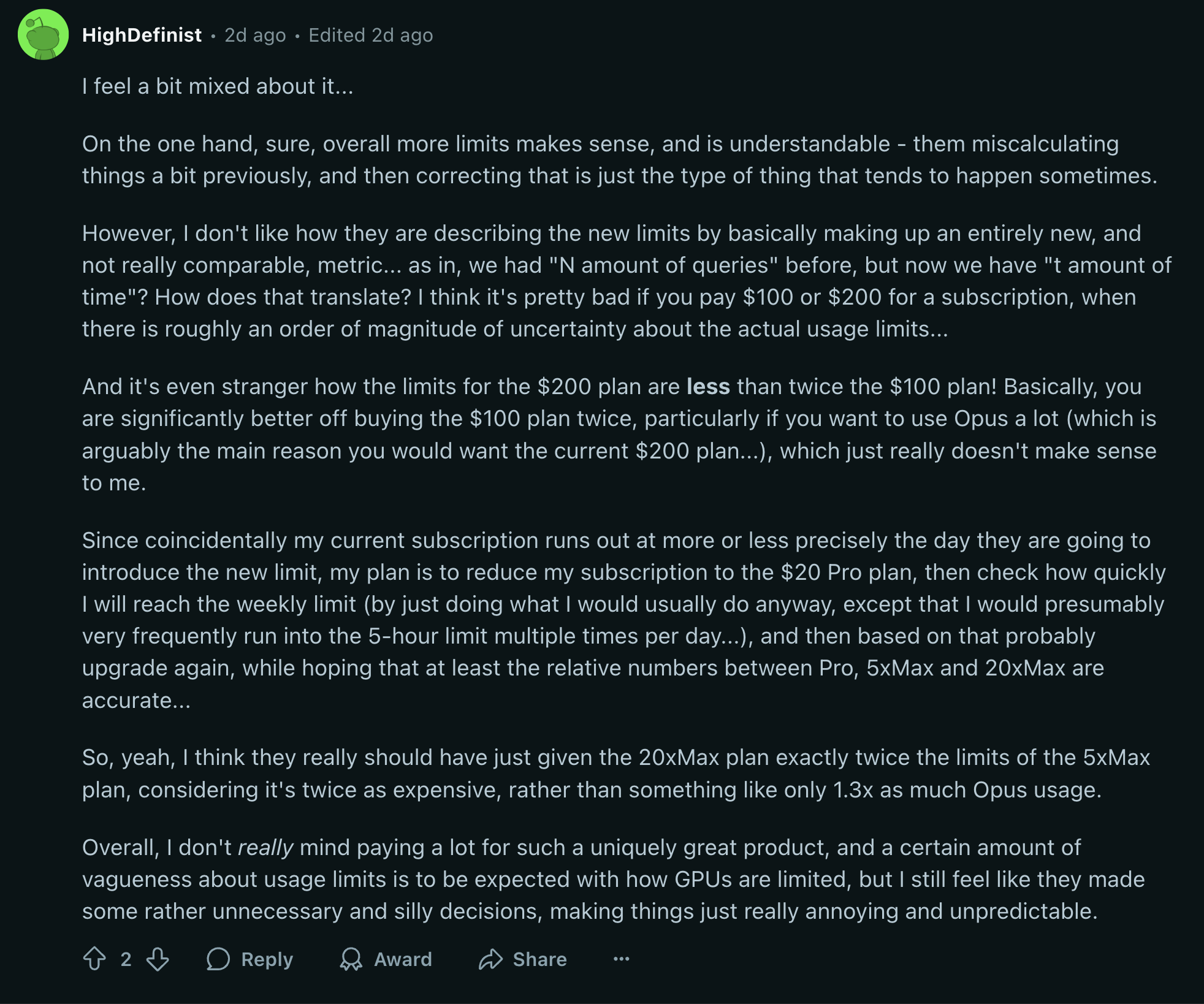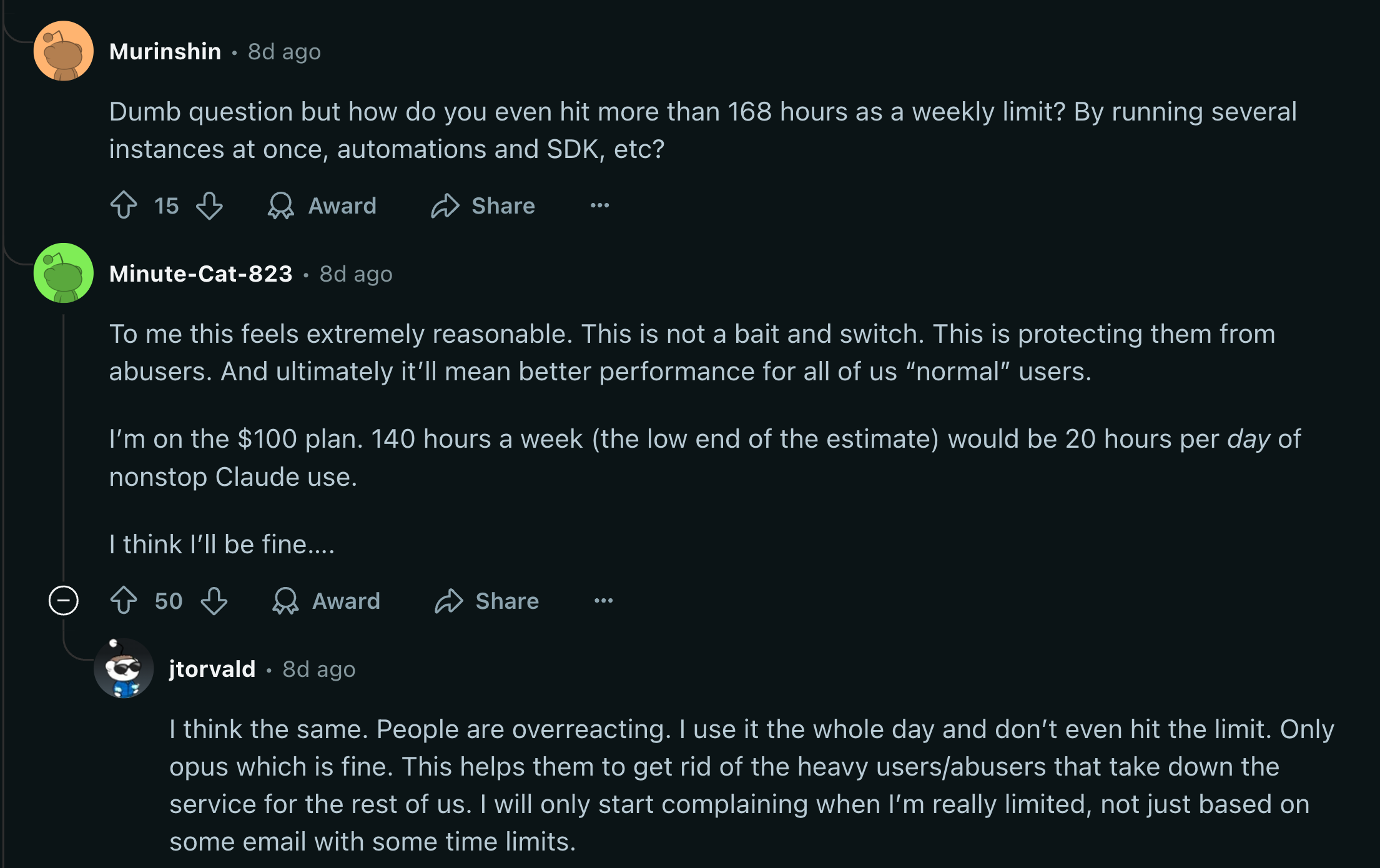
It looks like the party’s over for Claude Code power users. Anthropic announced new usage limits in addition to its existing five-hour rotating window, meaning that Claude subscribers can now hit hard weekly caps regardless of how efficiently they manage their short-term usage.
Prior to now, Claude subscribers on all plans have had to contend with a rate limit which restricted how much they can interact with Claude during a five-hour window. This figure varies depending on what plan they are subscribed to, and fluctuates based on overall system demand, with access tightening during peak usage periods to maintain performance for all users.
Moving forward, this will remain the case. But in addition to that, some users will also now face a fixed ceiling in total usage over a weekly period. The reason? A small number of compute-hungry outliers, according to Anthropic.
The company said that some Claude Code users are running it continuously in the background, 24/7, with one individual consuming “tens of thousands in model usage on a $200 plan.”

These new limits apply to all Claude subscribers, not just those using Claude Code. However, Anthropic points to Claude Code’s “unprecedented growth” as one of the reasons for introducing these new limits, in addition to policy violations such as account sharing and reselling access.
Starting August 28, 2025, Claude subscribers will now face a limit that resets every seven days, with its flagship Opus 4 model, specifically, subject to a stricter sub-limit within the overall cap.
In real terms, this means that the majority of Max subscribers on the $100/month 5x plan can expect 140-280 hours of access to Sonnet 4, and 15-35 hours of Opus 4 before they start hitting any ceiling. And as per TechCrunch’s report on the news, the $200/month 20x plan will get the user 240 to 480 hours of Sonnet 4 and 24 to 40 hours of Opus 4\.
Those on the $17/month Pro plan, meanwhile, will get 40 to 80 hours of Sonnet 4 only.
In short, heavy Opus 4 users working on large-scale coding projects, or those running several Claude Code sessions in tandem, could hit their weekly cap fairly quickly. However, Anthropic says that the changes will impact “less than 5% of users based on current usage patterns.”

Reaction to the change, as you might expect, has generally been downbeat, however some have tried to remain pragmatic about it. One member of the community said that while they don’t mind paying for what is fundamentally a great product, they would like more transparency and predictability. For instance, switching from more of a prompt-based limit approach to time-based metrics that don’t clearly explain how an "hour" is actually measured, or enforced, feels arbitrary and frustrating.
And they also pointed out that the Opus 4 limits on the Max 20x plan isn’t exactly double that of the 5x plan, even though the price for the plan is double.

In a separate Reddit thread titled “RIP Claude Code,” several users argued that the move wasn’t a bait-and-switch, and that the changes are reasonable.

Several of Claude Code’s competitors have also switched up their pricing of late. Cursor-creator Anysphere revised its Pro plan so that more usage is tied to API consumption, while Replit introduced “effort-based pricing” for its AI coding agent, linking costs to task complexity.
Both these changes reflect a transition to a more compute-aligned cost structure, where users are billed in proportion to model workload. Anthropic’s approach, by contrast, is more quota-based, adopting weekly usage caps within flat-rate subscriptions.
This divergence likely reflects the underlying economics: unlike Cursor or Replit, Anthropic builds its own models. This means that rather than passing through third-party API costs, it can manage usage internally and allow it to focus on system-wide stability and equitable access, rather than per-request billing.
Claude Code’s weekly caps will frustrate power users for sure, but they also sidestep the unpredictability that often comes with token-metered or effort-based pricing.